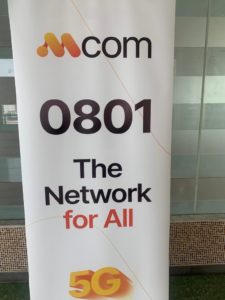MAFAB TO LAUNCH 5G LATER THIS YEAR
Nigeria’s 5G scene has seen its fair share of interest with big telecoms like Airtel or MTN snapping up licenses two years ago. One interesting bit, though, is that both telecoms will soon find themselves competing with a newcomer: Mafab Communications.
Nigeria’s telecom regulator has announced that Mafab plans to launch its services later this year, which would increase the total number of telecom players to five, with three telecoms—MTN, Mafab and Airtel—offering 5G services.
In December 2021, Mafab secured a 5G license with a $273.6 million bid. Now, the Lagos-based telecom is set to launch 5G services across Nigeria, with about 30 cities currently boasting such coverage in the country.
Unlike counterparts like MTN known for infrastructure sharing with IHS Towers, Mafab chose to build its network from the ground up, which required navigating regulatory hurdles like securing a Universal Access Service License (UASL) license—an operational license for the 5G spectrum, which cost ₦374.6 million ($415,521).
Having secured the UASL license in July 2022, Mafab now faces the task of investing billions to build its network infrastructure.
Failed market entry attempts: After missing the August 24, 2022 deadline set by Nigeria’s telecom regulator to roll out the network across the country, the telco was granted a five-month extension to begin its own roll-out. However, there have been inconsistencies. Despite targeting six cities—Lagos, Abuja, Port Harcourt, Enugu, Kano, and Kaduna—for initial deployment, its 2023 launch in Abuja and Lagos, which was also an unveiling event of its new logo and brand name, Mcom, lacked concrete product demonstrations and a definitive launch date. The recent push to sell 5G routers before a confirmed network launch also raised questions about their readiness to hit the ground running.
Zoom out: For MTN, who won the auction for the 3.5GHz 5G spectrum alongside Mafab, the telco became the first to roll out 5G in Nigeria and is now present in 13 cities and over 700 sites in Nigeria.
Source: TechCabal

